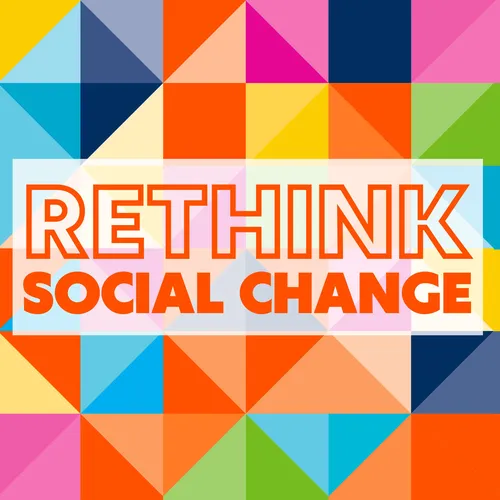Learning brokers and how to negotiate progress towards change with Florencia Gierzovich
- Author
- Ratiba Cherif
- Published
- Fri 15 Mar 2024
- Episode Link
- https://share.transistor.fm/s/0e6803e4
Hey Changemaker,
Get ready to dive into this insightful conversation with Florencia Gierzovich!
With a background in political science and extensive experience in governance, programming, and monitoring and evaluation, Florencia has made significant contributions to transparency and accountability initiatives from the Argentinian Anti-Corruption Office to her work with the World Bank and the Open Society Foundation, she's definitely honed her systems convening skills.
The cards drawn got us to discuss the Economic context surrounding Dialogue Facilitation, highlighting its value, the costs involved etc. and how we could harness Technology to support these processes. We talked about the role of facilitators at various levels, acting as brokers and system conveners, negotiating progress and change; and how adapting and scaling facilitation methods is crucial for sustainability and long-term impact. We also, of course, discussed monitoring and evaluation, emphasizing the importance of capturing progress and reframing indicators for learning.
She also shared her effort to re-think complex causal pathways as a result of relationships that entail deliberation, social learning, and compromise. She and co-creator Alix Wadeson designed a rubric to address the « evaluation-of-sustainability-paradox » with a focus on evidencing sustainability prospectively. More on that below.
Some of my key takeaways from our conversation included:
1. Value of Facilitation: Exploring the economic context of dialogue facilitation underscores its importance in driving meaningful change. Facilitators serve as brokers and system conveners, navigating complex dynamics to negotiate progress and foster authentic dialogue.
2. Adaptation and Learning: Adapting and scaling facilitation methods are essential for sustainability and long-term impact. Monitoring and evaluation processes play a crucial role in capturing progress, reframing indicators, and resignifying failure as valuable learning opportunities.
3. People-Centric Approach: Emphasizing the value of people and networks in learning highlights the importance of intentional learning and authenticity. Creating spaces for dialogue and knowledge-sharing within complex organizations is essential for fostering meaningful change and building blocks for future progress.
If you’d like to learn more about the rubric you can check out this quick-read blog post:
https://medium.com/@florcig/addressing-the-evaluation-of-sustainability-paradox-a-relational-rubric-for-evidencing-001683a36398
And if you’d like to dig deeper, here’s their full publication entitled “Scaling Up Collaborative Social Accountability in Complex Governance Systems:
https://documents.worldbank.org/en/publication/documents-reports/documentdetail/099248202082451403/idu143be23531a0f714f561b91515c596de86102
Hope you’ll get as much from it as I did. Feel free to comment with your own insights and thoughts about the potential of facilitating dialogue for real, inclusive, and sustained change and how YOU are demonstrating outcomes for lengthy and complex projects.
#systemschange #facilitatingdialogue #complexity #systemslearning #evidence #monitoringandevaluation #evaluation #rubric #causalpathways #conveningpower #socialchange #consulting #MERL #MEL #organizationalculture #walkthetalk
